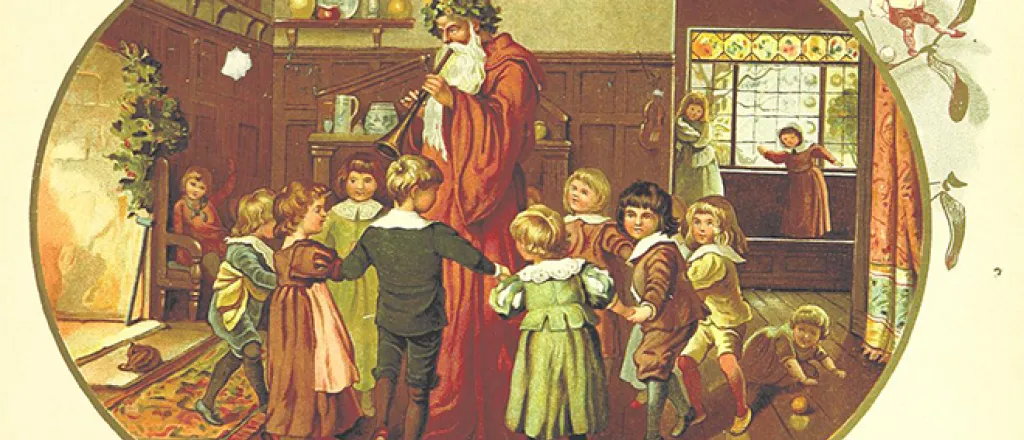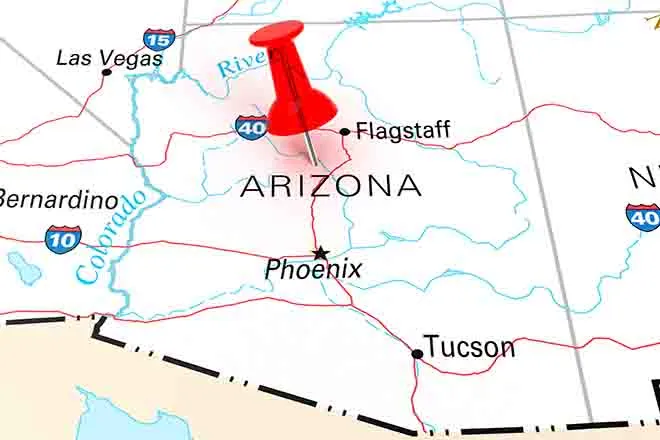
Commentary: A Christmas miracle during the Battle of the Bulge
“For a day, the God of goodwill was once more master of this corner of the earth when He united opposing men of different honors to share brotherly love in His name." – Jean-Paul Sartre
In many sectors along the Western Front during World War I, troops spontaneously stopped fighting at Christmas and enjoyed a brief but welcome respite from the horrors of war. Such moments of humanity were largely lacking from World War II. But one notable exception occurred during the Battle of the Bulge, when seven young soldiers were spared from the fighting on Christmas Eve.
During World War II, due to the love and courage of a mother, a miracle took place on Christmas Eve in the Ardennes forest during the Battle of the Bulge. Elisabeth Vincken from the German city of Aachen was forced to seek a new home when her house and bakery were destroyed by an Allied bombing raid. They fled to a small hunting cottage her husband used on weekends before the war.
The Vinckens, with their 12-year-old son Fritz, sought refuge there to be isolated from the war. Her husband, a member of the defense squad in Monschau, near the cottage, came home to visit them regularly. It was an act of God that brought a storm that kept him from coming home for Christmas.
December 16, 1944, nine days before Christmas, the Germans launched Unternehmen Wacht am Rhein – "Operation Watch on the Rhine." It was the last major counteroffensive against western Allies. This caught the Allies by surprise, as desperate Allied units tried to fend off this ruthless German attack. Soon, the entire Ardennes Forest was overwhelmed in a contentious battle for its survival.
Elisabeth and Fritz were alone in the cottage with a plump rooster intended to be cooked for their Christmas dinner. Elisabeth had named the rooster Hermann Göring after the prominent well-fed head of the Nazi air force. He was not very well-liked by the Vincken family or by other Germans.
Early on Christmas Eve, she heard a loud, anxious knock on the door of the cottage. Elisabeth quickly blew out the candles so Fritz could open the door. When she saw three soldiers on her doorstep, she ran to greet them herself. She found three young American GIs outside. One was deathly pale, laying face down in the snow. They'd been separated from their battalion three days.
They didn't speak German, and Elisabeth spoke no English, but she looked at the desperate men and invited them in. This was a dangerous act of kindness. Had the Germans found her harboring the enemy, she would have been executed. Yet she allowed them in and sent Fritz outside to fill a bucket with snow. She had Fritz take off their jackets and boots and rub their frozen feet with snow.
One soldier and Elisabeth spoke a little French and they started communicating. The American GIs were Jim, Robin and Harry, the one who was wounded and soon fell into sleep. Elisabeth ordered Fritz to fetch six potatoes and Hermann the plump rooster so she could cook these young men a warm Christmas meal. She told Fritz, "They need a hot meal much more than we do this evening."
Elisabeth ripped her bed sheet into bandages and did her best to treat Harry's wounded leg. With the smell of the hot chicken filling the room, there was another knock on the door. Fritz believed it was more lost Americans and opened the door. But this time, however, it was four young German soldiers. Elisabeth ran to the door and quickly stepped outside and greeted them with "Fröhliche Weihnachten" – "Merry Christmas." The soldiers returned the greeting. The corporal explained they had lost their regiment and were concerned that they'd freeze to death if they remained outside all night. They were hoping that someone in the cottage would allow them to stay there until daylight.
Elisabeth replied, "Of course you can. You can also have a fine, warm meal and eat till the pot is empty. But we have three other guests, whom you may not consider friends." Her compassion now turned to concern. "You know this is Christmas Eve, and there will be no shooting or war in here."
The German corporal quarried if the men inside were Americans. Elisabeth sternly replied. "Listen, you could be my sons, and so could those inside. A boy with a gunshot wound, fighting for his life, and his two friends, lost like you and just as hungry and exhausted as you are. This one night, this Christmas night, let us forget about killing. Let us forget about war. Let us thank God we are alive."
The corporal stared at her stoically. Elisabeth decided it was time to break the dangerous silence. She clapped her hands and told the Germans to leave their weapons outside if they want to come in. Elisabeth quickly retreated inside and told the American GIs what had transpired. They agreed to give their guns to Elisabeth, who took them outside and put them with the Germans' weapons.
When Elisabeth brought the German soldiers over to meet the GIs, they stoically stared at each other. Elisabeth intervened again. She strategically placed her guests around the dinner table and whispered to Fritz, "Get more potatoes and fresh oats. These boys are hungry, they are starving."
The German corporal produced a bottle of red wine and a loaf of rye bread to share with the GIs. Elisabeth said grace and prayed for peace. Fritz noticed their guests had tears in their eyes. For one night they could do something other than fighting each other. For one night, they were seven lonely young men, lost in the woods, far from home, who were taken in by a God-fearing Christian woman.
After dinner, one of the Germans who spoke fair English and had studied medicine examined Harry's wound. He explained to Harry he needed to clean his leg daily with soap and water. He added, "You also need to eat more healthy foods like red meat to make up for your blood loss."
The two groups slept peacefully through the night in peace and prepared to part their ways in the early AM. In the morning, Harry was given some broth and more of the German wine, some sugar, and the only egg in Elisabeth's home. The other soldiers ate oatmeal and slices of warmed bread. Elisabeth helped them fashion a stretcher for Harry out of two polls and her Christmas tablecloth.
Before departing, the German corporal showed his map and compass to the Americans, explaining how to get to the nearest American-controlled area. He also cautioned them to avoid the town of Monschau, which had been occupied by the Germans two days prior. Elisabeth then gave the soldiers back their weapons and watched them disappear into the forest in opposite directions.
This story has survived thanks to Fritz Vincken, who lives in Honolulu. Then President Ronald Reagan referenced it in a 1985 speech he gave about German reconciliation.
"Two former war heroes who met today at the unification ceremony; each an enemy of the other 40 years ago; each a witness to the horrors of war, broke bread together on Christmas Eve together in Aachen during the middle of World War. II. They came together then, as they have today, just as Germany has done too." - Ronald Reagan















